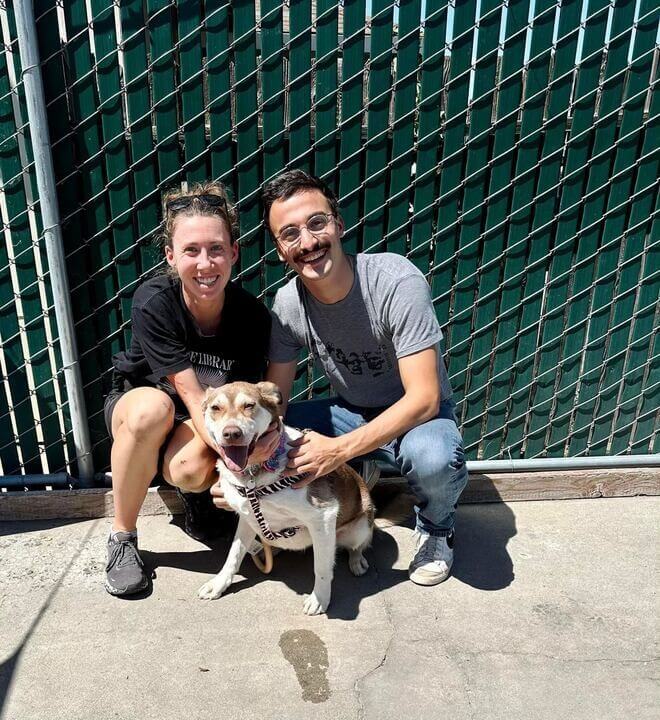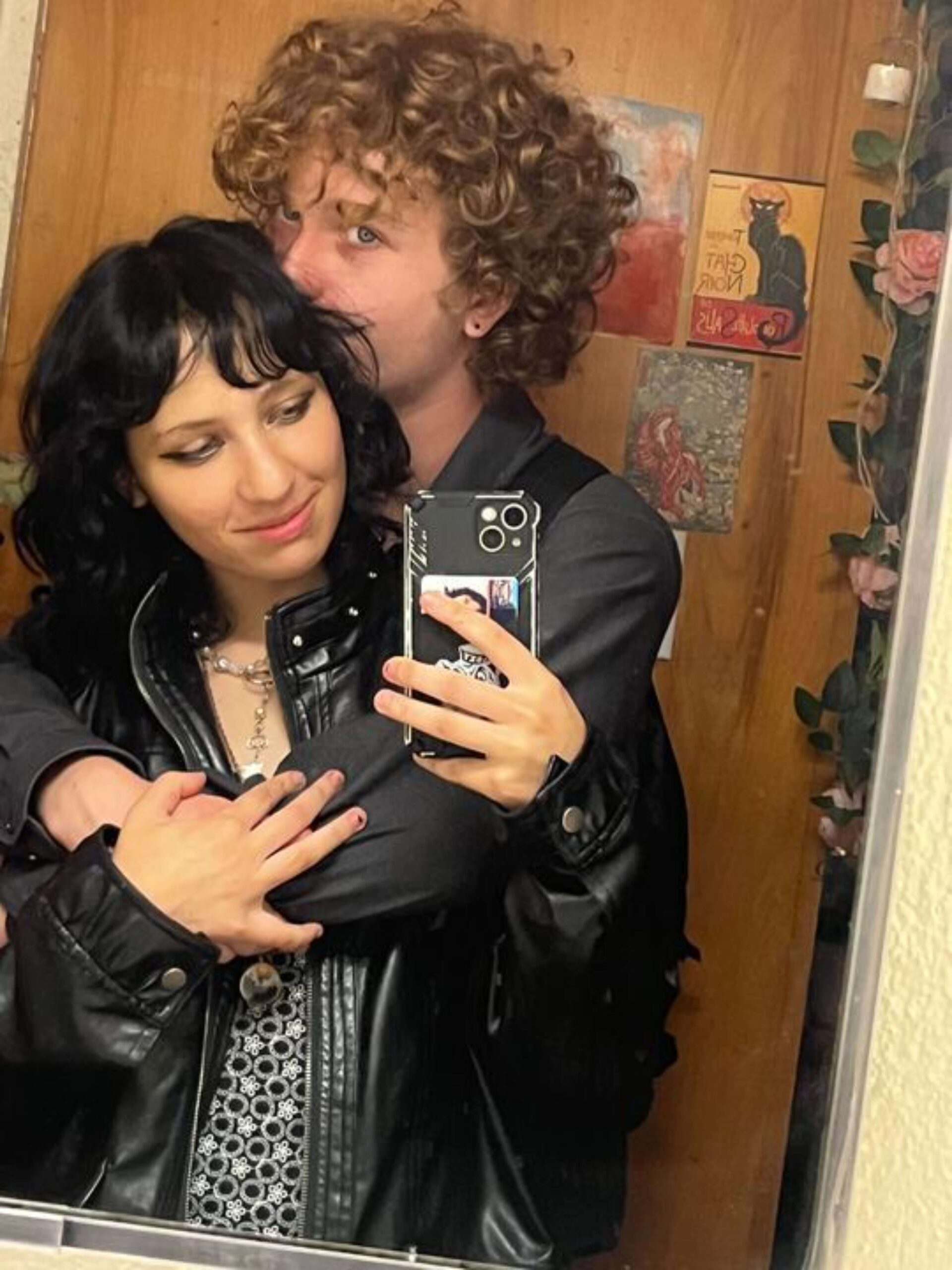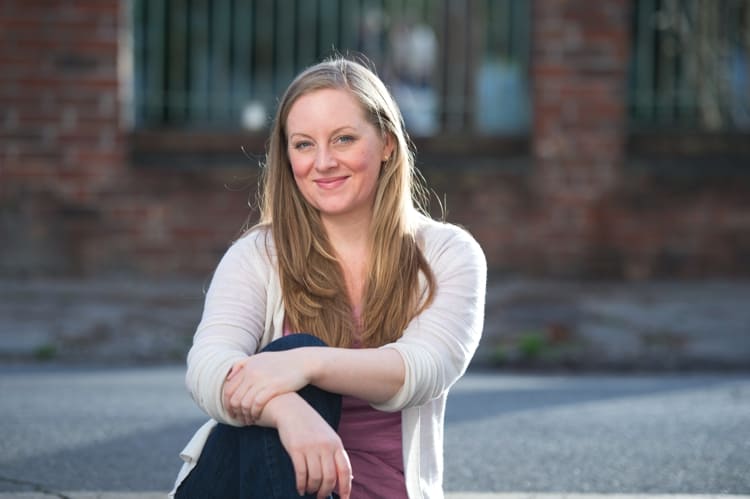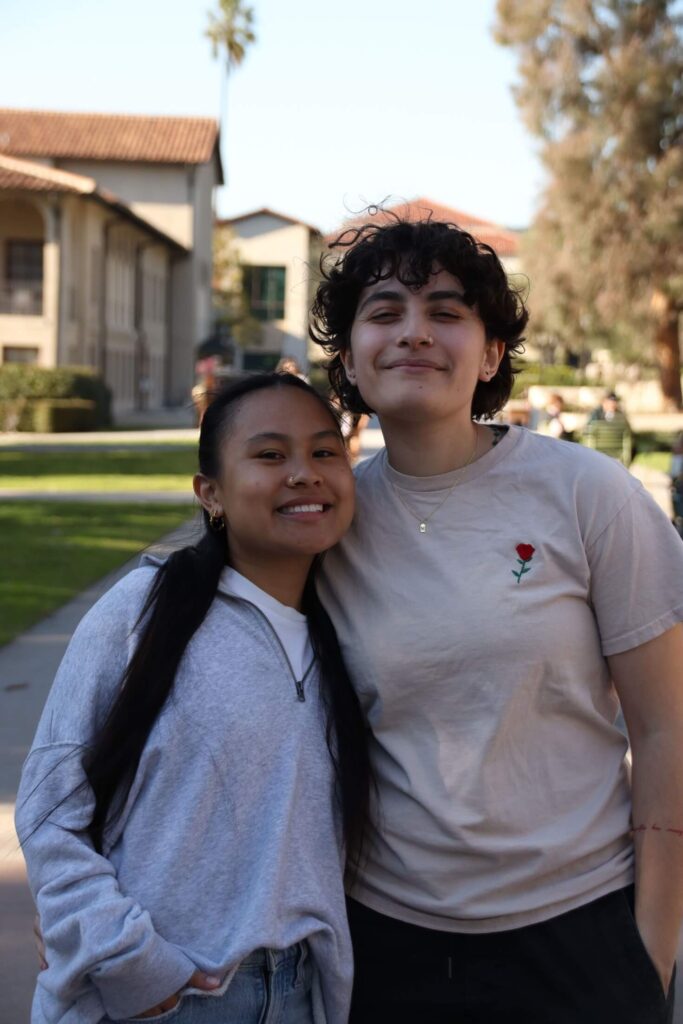On Valentine’s Day love is in the air, but perhaps nowhere more than at Occidental where the college boasts something of collegiate folklore nicknamed "The Statistic," which contends that 50-60 percent of Occidental alumni, including both students and faculty, end up married to fellow alumni.
Occidental alumni couple Dominic Massimino ’21 and Cora Davies ’19 said that over half of their friends who attended Occidental are still with their partners they met on campus. Davies also said she knows alumni who did not necessarily date while on campus, but found each other and formed relationships after graduating.
“Even if you may not have known each other that well while you’re at Oxy, you have all these things in common and it’s a good starting point for a relationship,” Davies said.
Massimino and Davies, who began dating during Davies’ senior year and Massimino’s sophomore year, met on campus through a mutual friend and became close during their time on the track and cross country teams. According to Davies, the spark between her and Massimino grew during their shared kinesiology class, where he would bring her coffee every single day.
“I was basically just pestering her all the time trying to get her to pay attention to me. Hence, the coffee,” Massimino said.
Davies and Massimino have celebrated five years together including their time on campus, and are now living together in Sonora, CA.

Courtesy of Dominic Massimino
However, despite the fateful statistic, will future generations of alumni follow this trend? Research suggests hookups are now more common than dates among college students. According to Dr. Lisa Wade, former Occidental sociology professor and author of “American Hookup: The New Culture of Sex on Campus,” most intimate relationships that take place on college campuses in the United States are characterized by hookup culture. Wade defines hookup culture as a sexual culture that emphasizes sexual contact with multiple people with no explicit romantic intent.
Despite the popularity and prevalence of hookup culture on college campuses, some members of the Occidental community have still chosen to opt out in favor of a romantic relationship.
First years Max Ruden-Sella and Natalie Perkins said they met during orientation week and subsequently began dating. According to Perkins, she was skittish about entering a relationship at first, as she said she initially wanted to participate in hookup culture during her first year. Perkins said it was her connection with Max that changed her mind.
“It’s just Max. I’d never met anyone like him before,” Perkins said.

Courtesy of Max Ruden-Sella
According to Perkins, a conversation she had with her dad also contributed to her decision to enter a romantic relationship.
“I was talking to my dad about it and he was like, ‘Why get hurt over and over exploring when you have something really good and someone who isn’t going to hurt you?” Perkins said, recalling her dad’s advice.
Perkins’ dad’s advice aligns with Wade’s perspective on the experience of emotional pain while engaging in hookup culture. According to Wade, hookup culture, especially in heterosexual dynamics, tends to represent the stereotype of a masculine ideal for sex — casual hookups all the time, with different partners, without accountability or emotional attachments. Wade said that because of this structure, hookup culture can sometimes be unpleasant for straight women.
“When women participate, there’s this assumption that they’re going to be bad at [casual hookups]. If we assume women are bad at it, then it means they’re always catching feelings and if they’re always catching feelings, then they are [considered] annoying,” Wade said. “That can make [hooking up] unpleasant for women. Not necessarily because they don’t like hooking up, but because everyone assumes that they don’t.”
Wade also observed that Gen Z is having less sex than any other generation. Wade said she believes that the pressures of hookup culture are the cause of Gen Z having less sex, as their discomfort with casual sex leads many to not have sex at all.
“I think [hookup culture] is unpleasant for everyone because if everyone is trying to avoid all ways of being that are cast as feminine, it’s really like shutting down a huge part of what it means to be human. In that way, hookup culture is dehumanizing. I think everybody to different degrees suffers from that,” Wade said. “Some people can stomach it. Some women and some men can stomach it, but for a lot of women and a lot of men, it doesn’t always feel good.”

Courtesy of Lisa Wade
Wade emphasized that her critique specifically applied to heterosexual, cisgender hookup dynamics. According to Wade, queer-identified and gender-queer people tend to have a separate hookup culture dynamic.
“There tends to be more accountability to one another in the queer hookup culture than in the predominantly heterosexual one,” Wade said. “They tend to be a bit kinder to one another.”
Pilli Jaquez (senior), who describes her relationship with her girlfriend Moira Tañedo (senior) as a “friends to lovers arc,” suggests Dr. Wade’s observations about queer hookup culture reflect the Occidental community.
“It seems like [the straight dating scene] is always more complicated than queer dating. But also queer dating can be messy,” Jaquez said.
Jaquez and Tañedo met the summer before their first year at Occidental, and they began dating during their sophomore year. Jaquez says it was difficult to be surrounded by peers partaking in the explorations of hookup culture, and she felt people would question whether it was a good idea to get into a committed relationship.
“I feel like the most common narrative on Oxy’s campus is that everybody is into hookup culture and nobody actually likes to be or wants to be in a relationship,” Jaquez said. “I think it was kind of hard to be like ‘Oh no, I’m actually very content with being in a relationship with one person.
Wade points out that race also affects hookup culture. “For students of color, hooking up is a lot more fraught in that they have to confront the possibility of both sexual racism that is, you know, exclusionary, but also fetishizing,” Wade said.
Jaquez, who is Mexican, and Tañedo, whose parents are from the Philippines, say that race and cultural values play significant roles in relationship dynamics, as well.
“I’ve never dated a white person, and I don’t think I would because the values, I think, might be really different,” Jaquez said. “It might be almost exhausting to constantly be explaining why you are the way you are [and] why you feel the way that you do.”

Moira Tañedo (senior) and Pilli Jaquez (senior) on the Academic Quad at Occidental College in Los Angeles, CA. Feb. 12, 2024. Lucy Roberts/The Occidental
Why do college students seem to support the sexual contact and lack of emotional investment that characterizes hookup culture? Claudia Ortega, a staff clinician at Emmons Wellness Center, said that young people may struggle to communicate their feelings.
“Sharing our feelings can be scary, especially if we are not sure how one may respond,” Ortega said via email. “I think many times young people refrain from telling a romantic interest about how they really feel and/or if a partner did something that hurt their feelings because one can be afraid of rejection. In many ways, being vulnerable is not the norm and many are not used to sharing feelings and/or holding space for others’ feelings.”
Along with the fear of openly expressing one’s feelings, Ortega points to social media and dating apps as hinderers of romantic relationships.
“I think that social media and dating apps have played a major role in young people’s ability to communicate honestly and connect authentically sometimes,” Ortega said. “If we’re not talking to each other, we can be creating conclusions based off of a love interest’s social media activity, where we are filling in the gaps in between the posts with our own information.”
Ortega adds that social media and dating apps breed comparison amongst young people and present so many options for potential partners that it becomes difficult to choose and invest in meaningful relationships
According to Wade, social media and dating apps have turned people into commodities. Davies similarly said that the notion of scrolling through pictures of people can be dehumanizing and can be problematic in that way. On the other hand, Davies said that she feels dating apps can be a good tool if used correctly, and she knows people who have met on dating apps who are still happily together.
Social media also causes problems for people in relationships.
“I would struggle with all the relationship goals stuff you see on social media,” Tañedo said.
“It’s hard to see what you have when you see other people doing something that you’re like ‘I haven’t had that,'” Jaquez said. “It’s not about the person who’s going to love you the way that people show on social media, but [it’s about] the person who’s going to love you the way that you want to be loved.”
The interviewed couples individually spoke about what their experience has been like pursuing a romantic relationship at Occidental, specifically.
According to Perkins, the small size of the campus made it easy to approach Ruden-Sella.
“I think [Oxy] being such a small campus made way for the times that I ran into him. I had run into him several times [during orientation] week, which was what made me be like, ‘Oh, this guy is cute,’” Perkins said.
Davies similarly said that Occidental’s small community size helped foster her relationship with Massiminio. Jaquez credited the college’s liberal arts curriculum for providing spaces to engage with people with different interests.
“The liberal arts experience and us having two different majors but being able to take classes in a bunch of different disciplines has allowed us to be in academic spaces together, which I think is cool to see each other in that setting,” Jaquez said.
The Occidental community is also a place where students can authentically express their sexualities, according to Jaquez.
“It’s definitely really easy to be queer at Oxy, at least for me,” Jaquez said. “It wasn’t until Oxy that I really stepped into my queer identity and felt comfortable with it. Before coming to Oxy, I knew that I was queer but I think I was uncomfortable with the identity.”
However, many couples suggested dating on a small campus has its downsides as well.
“The existing relationships are politics of a small campus and everyone knowing each other. Everyone’s kind of in your business all the time. There’s always weird pressure from different people and different things,” Davies said.
Jaquez and Tañedo added that dating within a small community has merged their identities.
“People perceive us as a couple rather than individuals,” Jaquez said. “Everybody knows and always expects you to be together.”
Massimino joked that if you casually hook up with someone, you run the risk of running into them in the Marketplace the next morning. Ortega also weighed in, saying that the small campus size can make it more difficult when student relationships end.
“Students are much more likely to share different spaces on campus, bump into each other or share friends. I can see grieving a relationship on campus being immensely difficult. Self-love and compassion is critical during these times.” Ortega said via email.
As for relationship and dating advice, the consensus seems to be to focus on ourselves before we focus on others.
“If we are able to show ourselves some compassion, sharing our feelings becomes less dysregulating and in turn so does rejection and constructive criticism,” Ortega said via email. “Also, the more we show ourselves love, the easier it is to listen and hold space for other’s feelings.”
More than two years into their relationship, Tañedo and Jaquez shared similar advice.
“Trust that you know what you need,” Tañedo said. “It’s never too much for the right person, be it [a] partner or friend.”
Despite the hardships of dating on a small campus, Jaquez said she feels thankful for Occidental.
“If it weren’t for Oxy, we wouldn’t have met,” Jaquez said, gesturing to Tañedo.
Contact Sydney Rey at reys@oxy.edu and Ariana McCaw at amccaw@oxy.edu
Illustration by Anissa Basnayake and Layout by Maeve Mascarenhas and Nicholas Novak
This article was updated at 3:26 to accurately reflect that Jaquez is of Mexican descent. It previously stated that Jaquez’s parents were from Mexico.
![]()






























